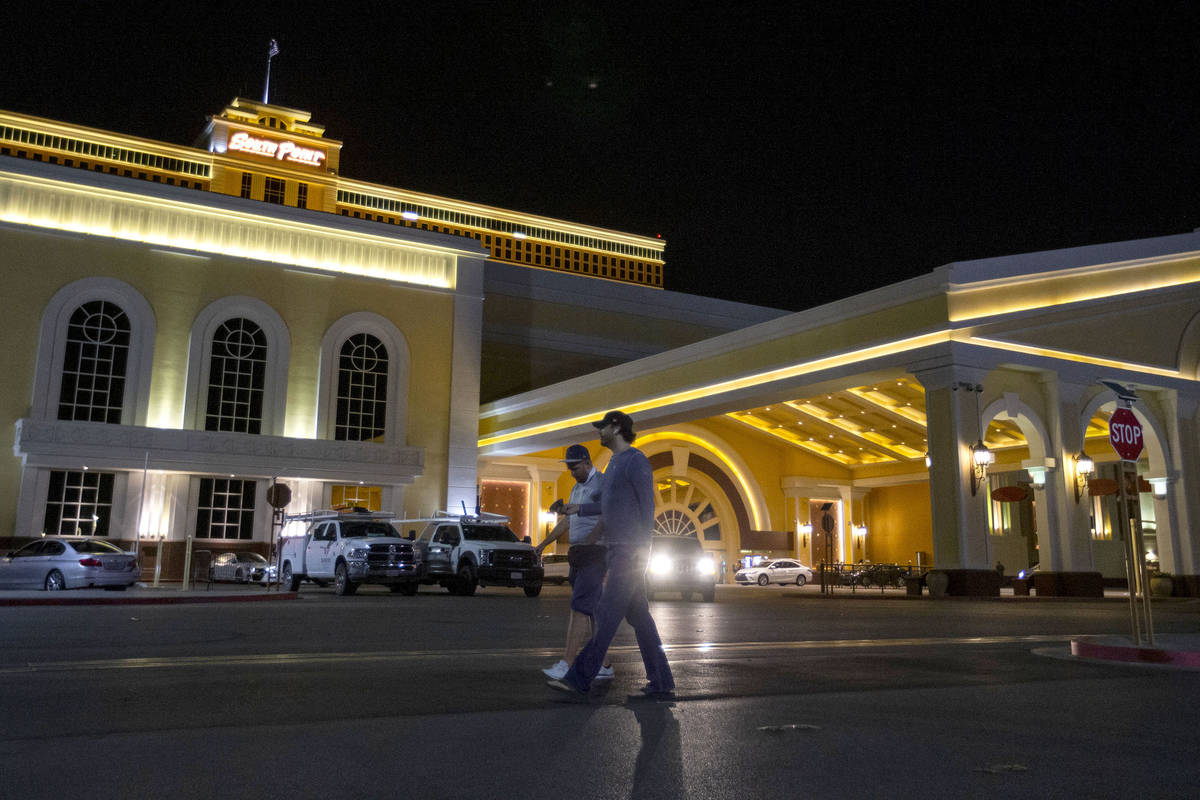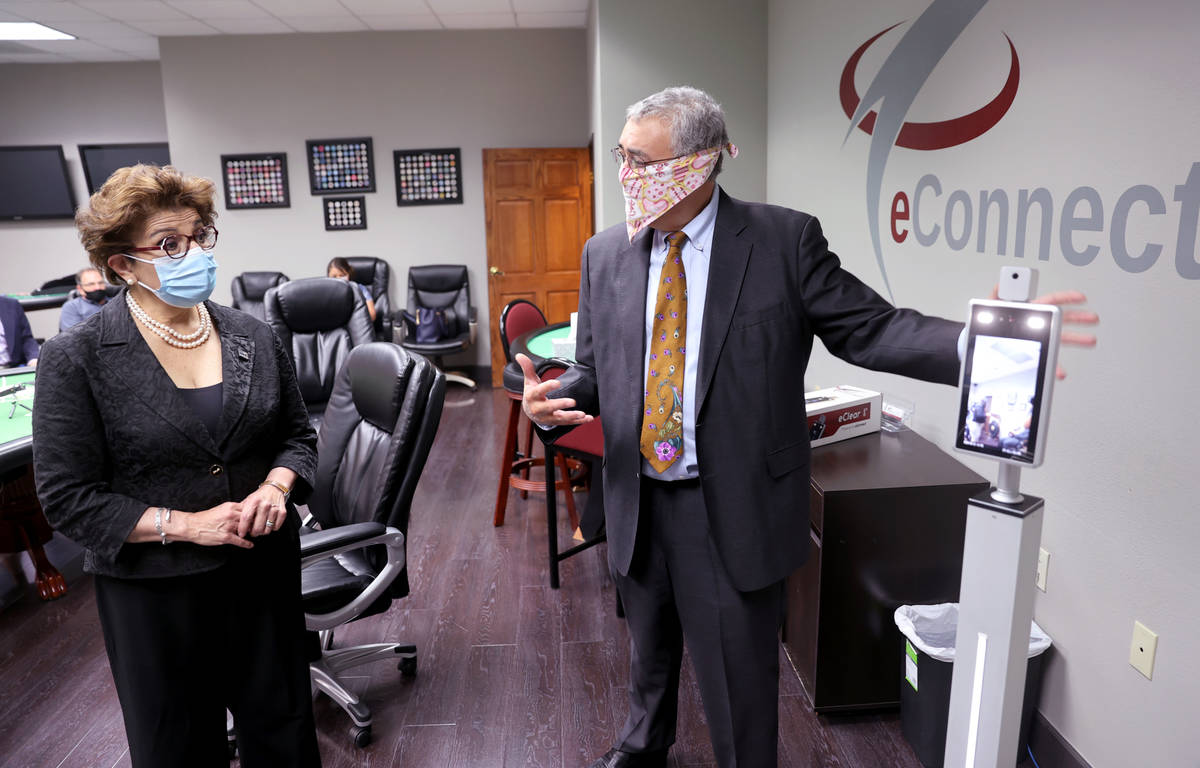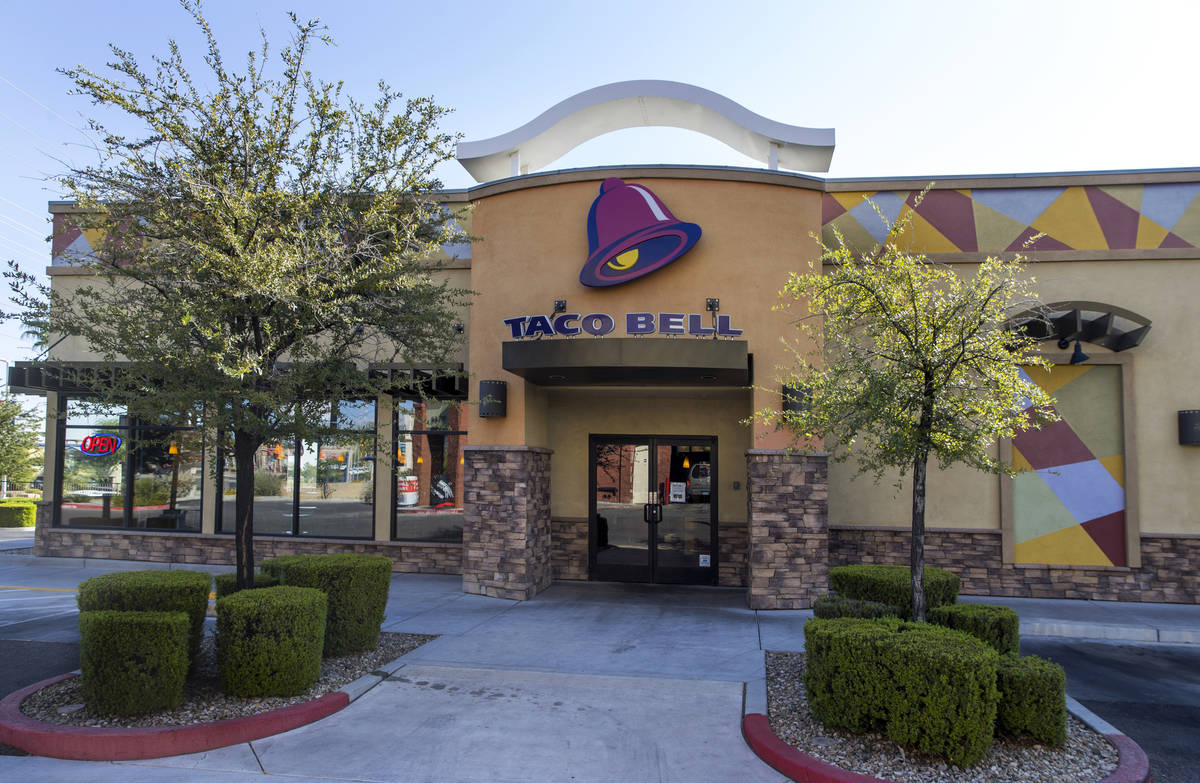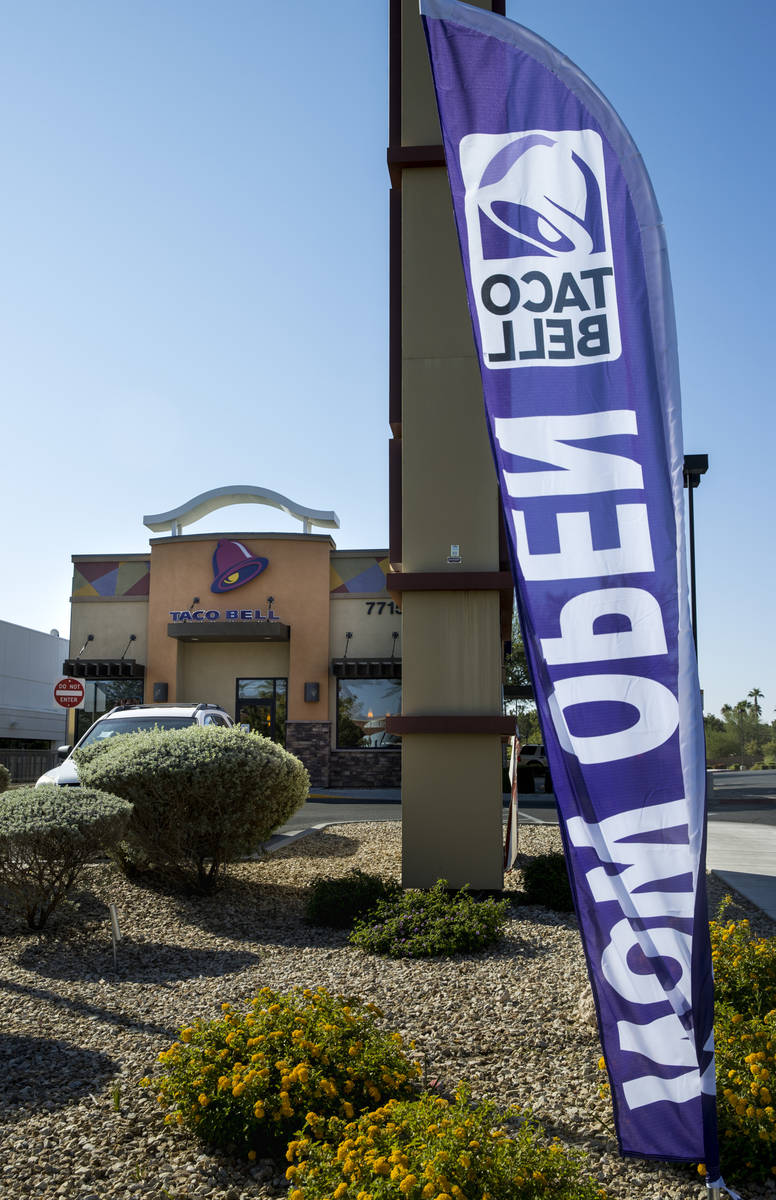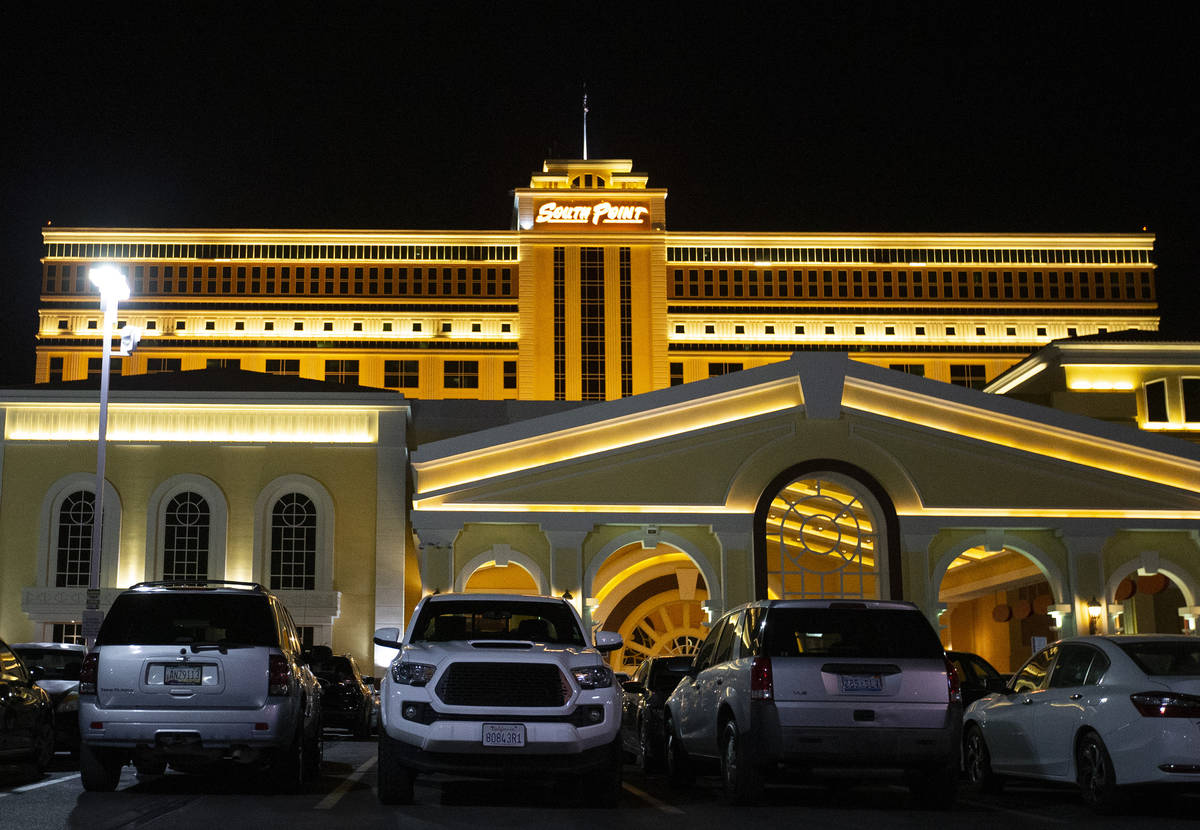About $4.1B in forgivable loans came into Nevada. Businesses are cashing in.
For Henry Valentino, federal small-business COVID-19 relief funds have helped retain employees and pivot his Las Vegas tech company in a new direction.
“We were one of those businesses that fit very nicely into the original objectives of the PPP,” said Valentino, founder and CEO of eConnect. “We didn’t let anybody go and actually hired a couple of new employees.”
The federal Paycheck Protection Program funds helped Nevada businesses weather the storm from the pandemic. Decisions on loan forgiveness, a central pillar of the PPP, are underway, and Nevada business and banking leaders are hoping the process will be easy for borrowers.
More than 5.2 million small businesses and nonprofits nationwide tapped more than $525 billion in potentially forgivable loans through the program. The Nevada Bankers Association estimates that more than $4.1 billion flowed to businesses in the Silver State.
“Small businesses have been waiting months for guidance from the government on the PPP loan forgiveness process,” said Randi Thompson, Nevada director of the National Federation of Independent Business. “We hope the process to apply for forgiveness is as simple as it was to apply for the loan.”
Applying
The program created in March under the CARES Act allowed businesses with up to 500 employees to apply, with an option for loan forgiveness as long as at least 60 percent of the loan went toward payroll-related costs. The remaining 40 percent could be used on other eligible expenses such as mortgages, rent and utilities.
To apply for the PPP, companies had to certify they had experienced the “current economic uncertainty” and the loans were “necessary to support the ongoing operations of the applicant,” according to the rules set out by the U.S. Small Business Administration.
Valentino said the $535,000 in PPP funds allowed him to keep his 26 eConnect employees on payroll.
“The purpose of that money — we used it for the purpose intended — and we will qualify for the 100 percent forgiveness,” he said. “We have the exact evidence, in payroll checks, that they would want to verify that we paid all of our people with that money.”
Valentino was able to pivot his software company when the pandemic hit to create contactless kiosks that take people’s temperatures and provide a health and wellness check. The system is used at several U.S. hotels and casinos.
Many business owners, like Valentino, rushed to apply for PPP funding within days after applications were made available. Valentino received approval within two weeks.
Hotels, casinos and fast-food chains applied, too
While the PPP’s aim was to help small businesses retain workers, several hotel and casino operators in the state were also eligible to receive PPP funds after the Trump administration changed a rule in late April.
CCLV Luxury Hotel Holding LLC, the owner of the Waldorf Astoria on the Strip, was awarded a PPP loan valued between $5 million and $10 million on April 9 and estimated that the funds would save 490 jobs. In late July, the hotel informed state employment officials that it would lay off a few dozen employees as a result of the pandemic and expected 476 previously furloughed employees to remain out of worker longer than six months. Spokesman Christopher Anderson said the company did not have a comment on how the PPP funds were used.
The Hilton Lake Las Vegas Resort and Spa received a PPP loan valued between $1 million and $2 million on April 7, reporting that the money would save 224 jobs. Bob Jensch, the general manager at the property, said the hotel’s ownership group did not have a comment.
Gaughan South Holding Company LLC, the owner of the South Point, received PPP loan approval of between $2 million and $5 million on May 26. Two weeks earlier, the South Point informed state officials it would need to furlough approximately 2,028 employees because of the pandemic. The company reported that the PPP loan would save 346 jobs. A representative for the casino did not respond to a request for a comment.
Silver State Bell Inc., which owns and operates several Taco Bell locations across the state, was awarded a PPP loan over $5 million. A representative for A&C Ventures, which oversees the properties, declined to comment.
Forgiveness
For months, banking leaders, business advocates and policymakers were unsure what the forgiveness process would entail. In early August, the SBA implemented its online forgiveness portal for lenders, and some banks were quick to roll out their own online application portal for borrowers.
During a Sept. 24 House Small Business Subcommittee hearing, William Manger, the SBA’s chief of staff, informed congressional leaders that lenders had submitted more than 96,000 forgiveness decisions for the agency’s review, though none had been approved.
That is expected to change soon. The SBA “began approving forgiveness applications and remitting forgiveness payments to PPP lenders for PPP borrowers” on Oct. 2, an agency spokesperson said in a statement to the Review-Journal. “SBA will continue to review all PPP forgiveness applications in an expeditious manner.”
Valentino submitted a PPP forgiveness application four weeks ago for a separate company, Quadrocopter, a Montana-based software and hardware manufacturer that he owns, to see how the process would go before submitting for eConnect. Quadrocopter received just under $30,000 in PPP funds and has about three employees.
“When I talked with the bank (Bank of George), they made me feel like it was going to be a week or two process, but when I followed up, they said that they’ve done their part and are waiting on the SBA to do their part,” he said. “So, I feel if they haven’t signed up to do the ones that are in the pipeline, I’m not feeling I need to rush the next one in the pipeline.”
Loan forgiveness applications are being processed at varying rates.
Nevada State Bank began accepting forgiveness applications on July 6, said Megan Comfort, senior vice president of the bank’s small-business lending program. The bank processed more than 5,100 clients, totaling more than $647 million in aid relief.
“Thus far, approximately 40 percent of PPP borrowers served by NSB are in some stage of the forgiveness application process,” Comfort said.
Others, like the Greater Nevada Credit Union, have not begun accepting forgiveness applications yet.
GNCU ranked second in the U.S. for credit unions that processed the most PPP loans, at $182.5 million, according to a recent analysis from S&P Global Market Intelligence. The company “will soon implement a technological solution to ensure all the loans can be processed to the SBA in a timely manner,” spokeswoman Jancy Ulch said.
Easy is key
Virtually all of the Nevada business trade groups agree that the forgiveness process should be easy. “A laborious process is the last thing a struggling business owner needs right now consuming his time,” NFIB’s Thompson said.
The Nevada Bankers Association said it has been advocating to see the process for forgiveness be “easy, simple and less technical for small business owners.”
In a report released in September, the Government Accountability Office said that the SBA estimates the forgiveness application would take three hours to fill out the standard form or 20 minutes for the abbreviated form.
“SBA officials told us that loan forgiveness is more complex than the loan origination process because the CARES Act has specific requirements for loan forgiveness,” the report states. Bankers told the GAO that it could take 15 hours for some borrowers to complete and that lenders could take 50 to 75 hours to review a complex application and supporting documentation.
Phyllis Gurgevich, the association president, said the NBA supports legislation in Congress that would automatically forgive PPP loans under $150,000.
“These bills will require SBA to process forgiveness via a simple, one-page attestation,” she said. “Passage will help ease the bureaucratic burden currently placed on our small businesses.”
Those talks in Congress have stalled.
The association said borrowers for the loans should retain all required paperwork because they are subject to an SBA audit at any time, even after forgiveness.
Contact Jonathan Ng at jng@reviewjournal.com. Follow @ByJonathanNg on Twitter.



